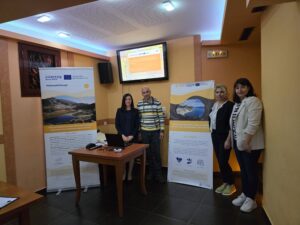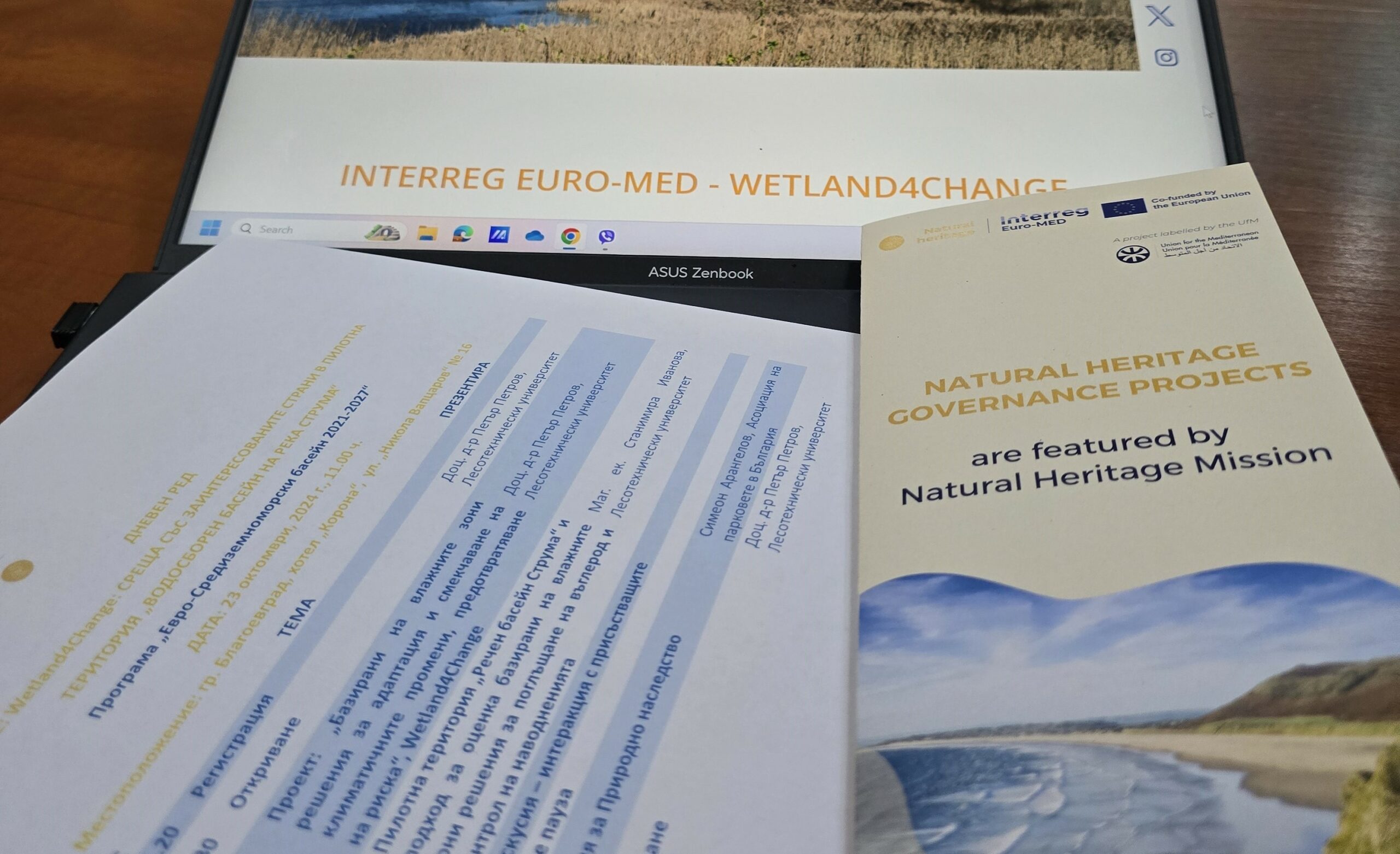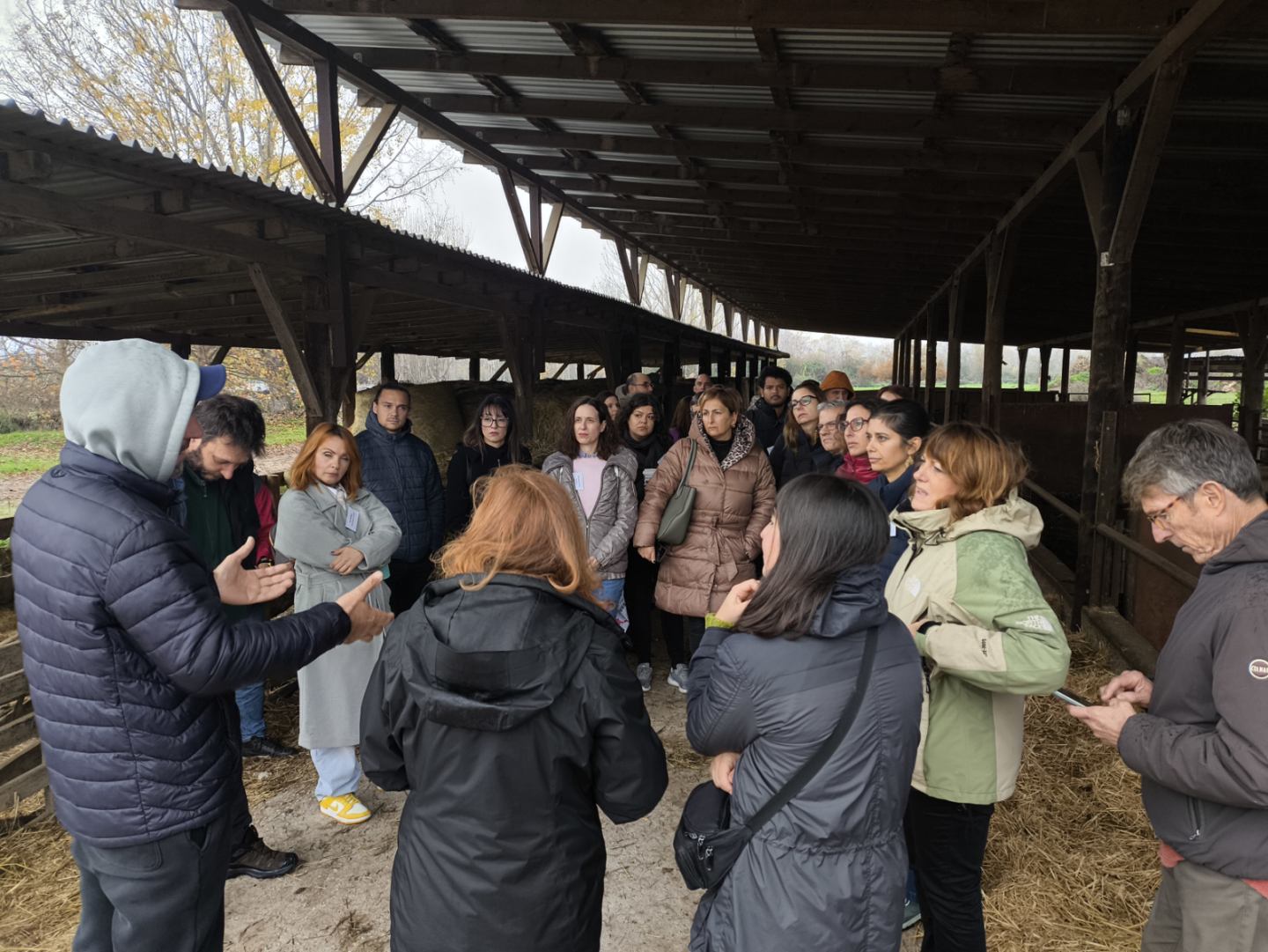Early this week, the Wetland4Change project took an important step forward by hosting its first local stakeholder meeting at the Struma Catchment in Blagoevgrad, Bulgaria. Organized by the project’s Lead Partner, the University of Forestry of Sofia, the event gathered a diverse group of local representatives, including municipalities, district governors and academics from South-West University Neofit Rilski. The focus of the meeting was to introduce the project and discuss the critical role that wetlands and Nature-based Solutions (NbS) can play in building climate resilience.
During the meeting, we engaged in productive discussions about the role of wetlands in climate adaptation and mitigation, sustainable management practices, and the future of biodiversity in the region. The event featured presentations on the ecological, social, and economic benefits of wetlands, with a particular focus on how the Struma Catchment serves as a valuable resource for local communities.
“This meeting marks an essential milestone for the Wetland4Change project as we begin our work in the Struma Catchment. This region is not only a vital natural resource but also a cornerstone for biodiversity and climate resilience in southwestern Bulgaria. By collaborating with local stakeholders, we increase their knowledge about the capacity of the wetlands existing in their area and we ensure the integration of Nature-based Solutions (NbS) into their regional strategies.” said Stanimira Ivanova, from the University of Forestry, Sofia, Lead Partner of the Wetland4Change project.

Local stakeholder meeting in Bulgarian pilot site | Struma Catchment 23 October 2024
The Struma River and its wetlands provide natural flood control, water filtration, and habitats for a wide range of species. These ecosystems are highly sensitive to climate change impacts, making it essential to implement approaches that strengthen their capacity. Our project aims to decrease the lack of knowledge on wetlands importance with further awareness and collaborate more with stakeholders for potential pathways to integrate wetlands into local policy and land-use planning.



